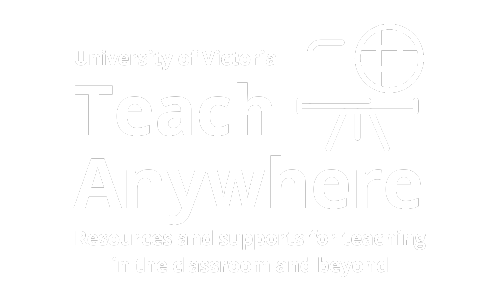About the grant
The Strategic Initiative Indigenous (SI-I) grant supports faculty and staff to revise programs, courses, curricula, or learning resources that will help fulfill UVic’s commitment to reconciliation with Indigenous peoples, as outlined in the 2023 Indigenous Plan.
Your proposal should emphasize the development of opportunities for UVic students to gain a better understanding of Indigenous peoples’ history and culture, and the impact of colonization in the following ways:
- underlining, valuing and integrating Indigenous ways of knowing, being, and doing
- deconstructing colonialism and de-centering unequal colonial knowledge structures
- promoting reconciliation of power relations between Indigenous and non-Indigenous peoples
- addressing specific Truth and Reconciliation Commission (TRC) Calls to Action
This grant is due on February 24, 2025 at 11:59p.m.
Request a consultation
Looking to receive feedback on your application draft or have a question about this grant?
Contact: Viviana Pitton, Director, Student Academic Success LTSI, vivianapitton@uvic.ca
Strategic Initiative Indigenous Grant
Application details
Eligibility
All LTSI grants are open to:
Single or co-applicants who directly support student learning and the student experience at UVic are eligible to apply for LTSI grants including:
- research stream faculty
- teaching stream faculty
- sessional lecturers
- laboratory instructors
- academic units
- staff
Previous LTSI grant recipients may apply. If your grant is still active, you must close it out before applying for a subsequent LTSI grant. Contact shaunadoherty@uvic.ca if you need information about how to close out your grant. You may not apply to more than one LTSI grant in the same year.
Grant criteria
Successful proposals will include:
- a clear specific statement of what the applicant would like to achieve
- a well-articulated plan for how to proceed and the principles that will guide the process
- a description of the proposed significance of the project in terms of contributions to teaching and student learning while improving or enhancing an understanding of Indigenous ways of knowing and being; deconstructing colonialism and decentering unequal colonial knowledge structures; and/or promoting the reconciliation of power relations between Indigenous and non-Indigenous peoples
- a brief, targeted review of the literature that supports the plan
- a sustainable budget
Submit your grant application
Complete your grant application using this Survey Monkey form. The platform enables you to save your materials midway, so no need to complete the application in one sitting. You can download the grant questions in advance, if you’d like to write a draft of your application outside of the Survey Monkey form.
Adjudicator's rubric
Adjudicators will use a scoring rubric to assess your proposal, with rating scores ranging from 1.0 to 5.0.
Additional materials and references
Besides the 2023 UVic Indigenous Plan, the following resources may be helpful in guiding how you frame your proposal:
- Alberta Regional Professional Development Consortium (nd). Weaving ways: Indigenous ways of knowing in classrooms and schools: An introductory guide.
- Allan, B., Perreault, A., Chenoweth, J., Biin, D., Hobenshield, S., Ormiston, T… & Wilson, J. (2018). Pulling together: A guide for teachers and instructors. Victoria, BC: BCcampus.
- Gaudry, A., & Lorenz, D. (2018). Indigenization as inclusion, reconciliation, and decolonization: Navigating the different visions for indigenizing the Canadian Academy. AlterNative: An International Journal of Indigenous Peoples, 14(3), 218-227.
- Binda, K.P. and Caillou, S. (Eds) (2001). Aboriginal education in Canada: A study in decolonization. Mississauga, Canada: Canadian Educators’ Press.
- Pete, S., Schneider, B., and O’Reilly, K. (2013). Decolonizing Our Practice – Indigenizing Our Teaching. First Nations Perspectives, 5 (1), 99-115.
- University of Victoria (2017). Indigenous Plan
Past recipients
2024-2025
- Susanne Thiessen, School of Public Administration
Enhancing Community-Based Indigenous Governance & Leadership Development in the Master of Arts in Community Development Program ($7,500) - Stephen Ross, Co-applicant Stephanie Erickson, Department of English
Reclaiming Family Medicine ($7,500)
2023-2024
- Cheryl Aro, School of Social Work
Integrating Local Indigenous Wisdom: Infusing Indigenous Knowledge into Social Work Courses on Campus ($4,000) - Scott McIndoe, Department of Chemistry
Indigenous knowledge – inspiring science ($7,500) - Stephen Ross, Deparment of English
Recovering Family Medicines – Celebrating the Great Mystery Together ($7,500) - Bryan Silverman, School of Child and Youth Care
Supporting the Continuing Indigenization of the CYFCS MA Program ($7,500)
2022-2023
- Jennifer Gruno, School of Exercise Science, Physical and Health Education
Furthering our journey in de-centering colonial knowledge structures in Physical and Health Education Teacher Education (PHETE) [$4,104.30] - Kim McLean-Fiander, Department of English
Decolonizing and Indigenizing English 146: Contemporary Literature ($7,500)
2021-2022
- Gwendolyn Gosek, School of Social Work
Understanding mental health policy and practice from a decolonial and anti-oppressive perspective ($7,000) - Dawn Smith, Indigenous Governance
ĆȺ,I ȻENTOL ÁTOL (work together respectfully) ($7,500) - Suzanne Urbanczyk, Department of Linguistics
Developing a Professional Specialization Certificate in Indigenous Language Documentation and Revitalization ($7,441.50)
2020-2021
- Douglas Stuart, Peter B. Gustavson School of Business
Decolonizing the Financial Management Curriculum: Integrating Indigenous Perspectives into Taxation for Managers ($3,240) - Pierre-Luc Landry, Department of French
Teaching Indigenous Francophone Literatures in Canada and Beyond: De-Centering Lecture-Oriented Learning Strategies ($3,647)

